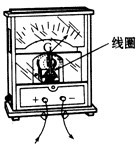问题
单项选择题 B型题
下消化道、妇产科手术的预防性用药宜选用()
A.头孢菌素类抗生素
B.β内酰胺类抗生素
C.针对G+球菌的广谱抗生素,首选第一代头孢菌素
D.主要针对G-杆菌,第二、三代头孢菌素,加用甲硝唑
E.主要针对G-杆菌,在第二、三代头孢菌素的基础上,加用甲硝唑
答案
参考答案:E
解析:围手术期预防性应用抗生素应选择广谱,杀菌活性强,主要针对可能造成感染的病原菌,且耐药菌株较少、副作用小的抗生素。头孢菌素类抗生素较为符合这些条件。

